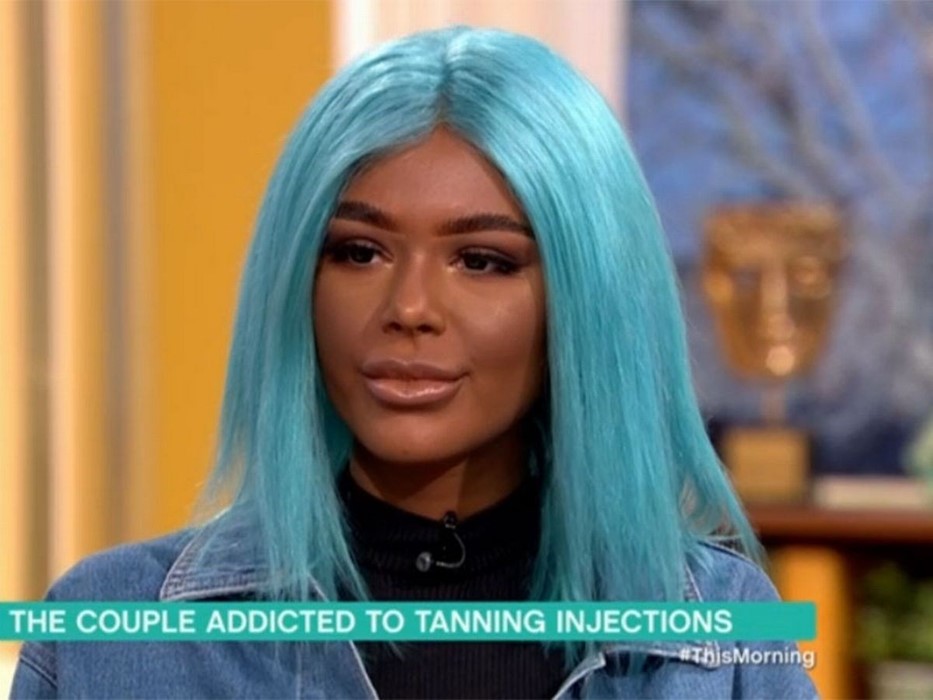Some White people are getting melanin injections to look and feel Black, but many questions remain unanswered!
In an ongoing and controversial beauty trend, some white individuals are taking drastic measures to achieve a darker complexion by using melanin injections.
Dubbed “melanotan,” this illegal and unregulated drug is being promoted as a fast-track solution to tanning, but experts warn of serious health risks.
The phenomenon raises important cultural and ethical questions as these individuals seek not just a darker skin tone but also claim to “feel Black” through these treatments.
What Is Melanotan?
Melanotan is a synthetic hormone that stimulates the body’s natural production of melanin, the pigment responsible for skin color.
Available primarily as injections or nasal sprays, melanotan I and melanotan II are the most common forms circulating online and in some beauty circles.
Originally researched for its potential medical uses, including treating erectile dysfunction, melanotan II has since been repurposed and marketed on the black market as a tanning enhancer.
Despite being illegal in many countries, including the UK and Australia, these injections are easily accessible through social media influencers and underground beauty salons.
Why Are People Using It?
For some White users, the goal goes beyond achieving a sun-kissed glow—they want to emulate what they perceive as Blackness.
Influencers and social media users tout the injections as a way to achieve a “Black aesthetic,” a troubling reflection of how Black culture and physical traits are often appropriated while dismissing the lived experiences and systemic issues faced by Black communities.
Experts warn that melanotan injections come with severe health risks, including nausea, kidney damage, and even an increased risk of skin cancer.
Dr. Emma Wedgeworth, a consultant dermatologist, explains that melanotan II overstimulates melanocytes—the cells responsible for pigment production—potentially leading to the development of melanoma, a deadly form of skin cancer. In addition, users are at risk of infections and abscesses due to unregulated manufacturing and unsafe injection practices.
One particularly concerning case involved a 27-year-old woman who developed stage-one melanoma after two months of using melanotan II.
The unregulated nature of the drug means that buyers often have no idea what they are injecting, with one study finding up to 6% impurities in samples tested.
The Cultural and Ethical Implications
The trend of white individuals seeking to “look and feel Black” through artificial means is not without controversy.
It raises questions about cultural appropriation and the fetishization of Blackness while ignoring the real struggles of Black people.
While those undergoing these treatments might enjoy temporary satisfaction, the broader social implications and potential health consequences remain significant concerns.
Safer Alternatives and Expert Advice

Dermatologists warn that the only safe way to achieve a tan is through self-tanning products, which provide the desired look without the health risks.
Dr. Wedgeworth strongly advises against quick-fix solutions like melanotan, stating:
“While you may be pleased with the temporary effect, you could be exposing yourself to long-term health problems.”
As the trend continues to grow, it underscores the ongoing pressure to conform to beauty standards and the lengths some will go to achieve them.
However, the quest for a darker complexion—particularly when driven by problematic desires to “feel Black”—is not only dangerous but raises deeper issues about identity, race, and respect.
